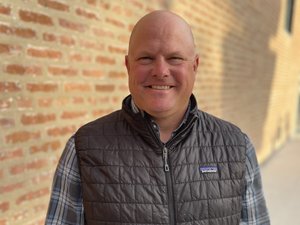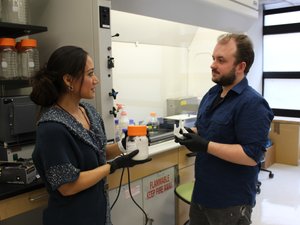
Bucketfeet hasn’t been immune to the woes the retail industry has felt in recent years.
The Chicago footwear startup has trimmed its team to just 11 full-time employees—down from 40 in 2015—as it’s experienced rising costs of an inventory-heavy model that requires Bucketfeet to predict which types of shoes are likely to sell. But Bucketfeet has a plan to reduce the cost of packing factories full of shoes that don’t fly off the shelves.
Today, the startup officially unveiled a new on-demand strategy where 100% of the company’s supply chain and production is moving to a made-to-order model. Customers select the shoe they want, a factory in China makes the product, and it’s delivered to the customer in 10 days or less.
With on-demand production and light inventory, Bucketfeet CEO Raaja Nemani says the company is on the forefront of a shift in retail that relies less on betting what customers are going to like a year down the road, and more on a direct-to-consumer approach.
“Inventory is fundamentally the reason that 2017 is the worst year in retail history in the United States,” Nemani said. “I believe the next three to five years are going to be a complete bloodbath in retail.”
With an on-demand model, Bucketfeet can react to ever-changing consumer preferences more efficiently. It’s a decision that makes sense, given industry trends, but it also fits the startup’s business of providing unique, artist-designed footwear. By going on-demand, Bucketfeet can work with more artists and feature more designs, giving customers even more eclectic varieties of shoes to choose from to match their style.
“Our customers aren’t coming to us to shop for a black shoe or a brown shoe,” Nemani said. “They’re coming to us to discover something they can’t find anywhere else. We literally have a shoe of a cowboy riding a rhinoceros. You can find that anywhere else.”
Bucketfeet launched in 2011 and has raised more than $28 million in funding from investors like Jumpstart Ventures, Listen Ventures and Trunk Club co-founder Brian Spaly. The startup isn't profitable, but Nemani says the company expects to be profitable by the end of the year. The company has sold over 600,000 shoes since it launched.
The new business model will allow Bucketfeet to work with more artists than ever before, Nemani said. The startup currently has a network of over 40,000 artists from more than 120 countries, but it expects its artist community to grow to over 100,000 by 2018. Bucketfeet will also increase its artist royalties from $1 to $10 per pair.
Bucketfeet isn't the only one thinking about a direct-to-consumer approach. Amazon recently won a patent for an on-demand manufacturing system that makes clothes only when an item is ordered. Adidas is working on a "SpeedFactory" that can make shoes at blazing fast speeds. And Nike says 20% of its production will move to automated factories by 2023.
But Nemani says Bucketfeet will be the first footwear brand to shift to entirely on-demand production, a move that will hopefully keep the startup competitive as the industry continues to shift online.
"What we’re launching is something nobody in the footwear industry has ever done, ever," he said. "And that's something we’re incredibly proud of. It's something I believe in the next three to five years everyone will be doing."
Each new Bucketfeet shoe will now cost $85, which is in between its previous range of around $65 to over $100. In the coming months, Bucketfeet plans to add global shipping, a custom ordering option to let users create their own designs, and launch another product that's supported by the on-demand manufacturing model, Nemani said. The startup says for now it plans to keep its three studio shops (two in Chicago and one in D.C.).
"I think the old way of retail, guessing what customers will like 12 months in the future, and assuming those preferences aren’t going to change, just simply doesn’t work," he said. "And we’re seeing this unfold in terms of a retail apocalypse right now.
"With an on-demand model we can react to ever-changing consumer preferences that are only going to accelerate. And we can avoid never betting on the wrong product."








